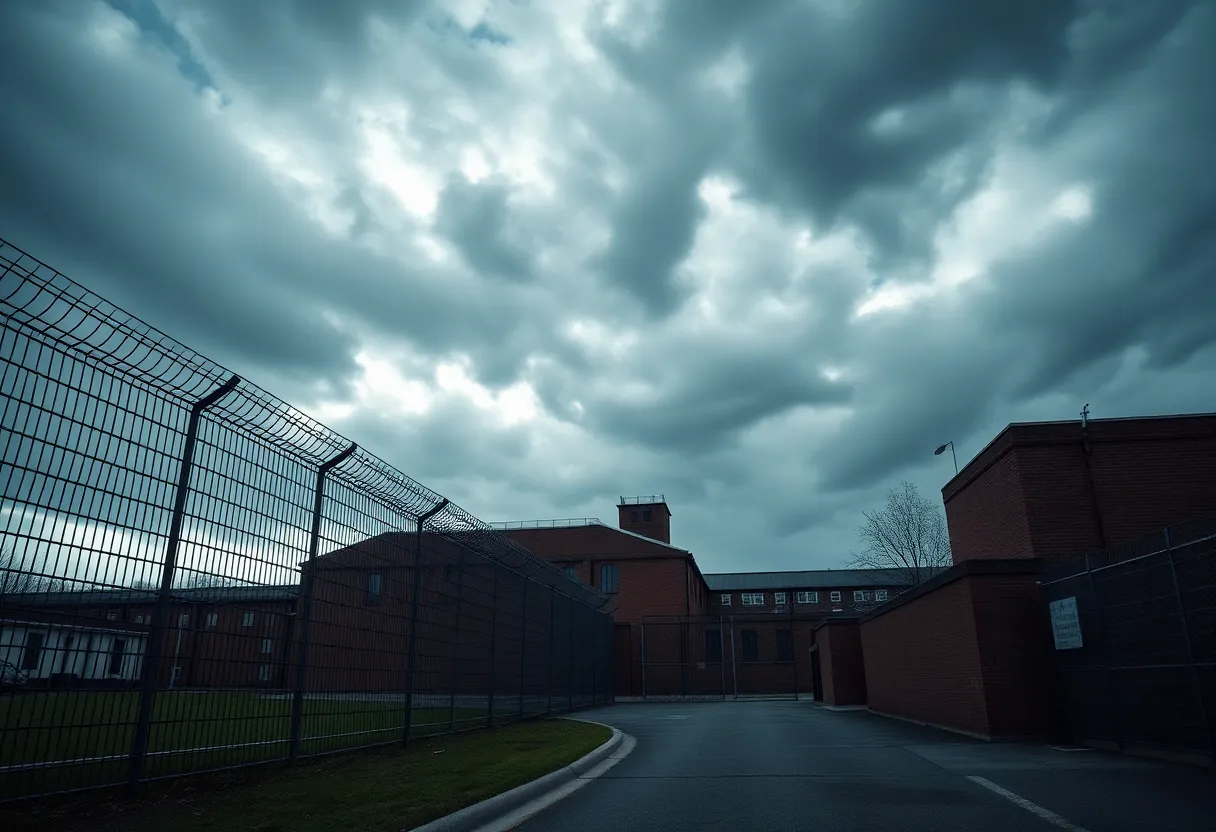News Summary
Stephen Stanko, 57, was executed by lethal injection in South Carolina, marking the state’s sixth execution since resuming capital punishment. Stanko was convicted for the brutal murders of his live-in girlfriend and a friend in 2005. Despite his remorse expressed in a final statement and a request for clemency, Governor Henry McMaster upheld the death sentence. The execution raises ongoing debates about the morality and efficacy of capital punishment.
South Carolina Inmate Stephen Stanko Executed by Lethal Injection for Double Murder
Columbia, South Carolina – Stephen Stanko, a 57-year-old inmate, was executed by lethal injection on Friday, June 13, 2025, at 6:34 p.m. The event marks the sixth execution in South Carolina since the state resumed capital punishment in September 2024.
Stanko was sentenced to death for committing two murders in April 2005, which involved the brutal killings of his live-in girlfriend, Laura Ling, and his friend, Henry Turner. He strangled Ling in her Georgetown County home, assaulting her teenage daughter during the attack. Following this, he shot Turner, using a pillow to muffle the sound of the gunshot, before stealing his friend’s truck and raiding his bank account. Ling’s daughter survived the horrific event and later testified against Stanko in court, contributing to his conviction.
In the lead-up to his execution, Stanko delivered a 3.5-minute final statement during which he expressed remorse for his actions and extended apologies to the families of his victims. He requested that he not be judged solely by the crimes he committed on what he called the “worst day of his life.”
After extensive deliberation, Stanko chose lethal injection as his method of execution, moving away from his initial preference for the firing squad due to concerns over previous executions that raised questions about the efficacy of that method. Observers noted that Stanko appeared to exhibit distress during the execution, taking several breaths as the lethal drugs were administered.
Stanko’s last meal consisted of fried fish, fried shrimp, crab cakes, a baked potato, carrots, fried okra, cherry pie, banana pudding, and sweet tea. His execution proceeded despite objections from his legal team, who raised concerns about South Carolina’s lethal injection protocols and the method’s past issues in executions.
Having spent more than 20 years on death row, Stanko was convicted in separate trials for his heinous crimes against Ling and Turner. His case had garnered attention due to the legal complexity and duration of his time in the penal system, during which time he had seen shifts in public and legal opinions regarding the death penalty.
South Carolina Governor Henry McMaster declined clemency for Stanko, continuing a pattern where no governor in the state has spared a death row inmate’s life in the past 48 executions. The decision underscored the state’s firm stance on capital punishment, despite ongoing debates about its morality and effectiveness.
Stanko’s final moments have underscored the emotional impact of his crimes not only on the victims’ families but also on public discourse surrounding the death penalty and its implementation in South Carolina. As the state carries on with executions, discussions about the methods and ethics of capital punishment continue to evolve.
The case of Stephen Stanko remains a poignant reminder of the consequences of violent crime and the complex legal battles that ensue in the wake of such tragedies. As society wrestles with these issues, it underscores the need for reflection on justice, repentance, and societal safety.
Deeper Dive: News & Info About This Topic
Author: STAFF HERE CLINTON
The CLINTON STAFF WRITER represents the experienced team at HEREClinton.com, your go-to source for actionable local news and information in Clinton, Laurens County, and beyond. Specializing in "news you can use," we cover essential topics like product reviews for personal and business needs, local business directories, politics, real estate trends, neighborhood insights, and state news affecting the area—with deep expertise drawn from years of dedicated reporting and strong community input, including local press releases and business updates. We deliver top reporting on high-value events such as the Festival of Discovery, Clinton Community Day, and performances at the Whitten Center Amphitheater. Our coverage extends to key organizations like the Clinton Area Chamber of Commerce and the Laurens County Historical Society, plus leading businesses in manufacturing and education that power the local economy such as Milliken & Company and Presbyterian College. As part of the broader HERE network, including HEREAiken.com, HEREBeaufort.com, HEREChapin.com, HERECharleston.com, HEREClinton.com, HEREColumbia.com, HEREGeorgetown.com, HEREGreenwood.com, HEREGreenville.com, HEREHiltonHead.com, HEREIrmo.com, HEREMyrtleBeach.com, HERENewberry.com, HERERockHill.com, and HERESpartanburg.com, we provide comprehensive, credible insights into South Carolina's dynamic landscape.






